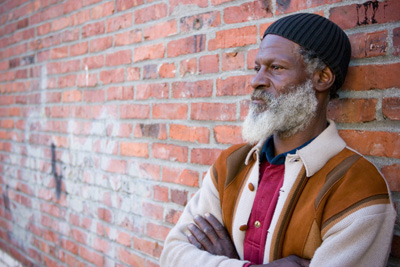Greater Income Inequality Linked to More Deaths for Black Americans
Greater income inequality is linked to more deaths among African Americans, but the effect is reversed among white Americans, who experienced fewer deaths, according to a new study by researchers at the University of California, Berkeley.

The study, published in the fall 2014 issue of the International Journal of Health Services, highlights stark racial differences in the effects of the widening wage gap. The United States has one of the largest gaps between rich and poor among developed nations. According to a report from the nonpartisan Congressional Budget Office, income grew by 275 percent for the top 1 percent of households between 1979 and 2007. In comparison, income for households in lower brackets grew only 40-65 percent in that same time period. The bottom 20 percent of households saw their incomes grow by only 18 percent.
“There have been a number of studies that have established the association between greater income inequality and poorer health on a population level, but ours is one of the few studies to explicitly factor in race,” said study lead author Amani Nuru-Jeter, associate professor of community health and human development and of epidemiology at UC Berkeley’s School of Public Health. “What is really important is the finding that income inequality matters for everyone, but it matters differently for different groups of people.”
The researchers analyzed census data from 107 U.S. metropolitan areas with populations that numbered 100,000 people or more and that were at least 10 percent African American. They used three different measures to assess income inequality, and then matched the results to National Center for Health Statistics mortality data from the same period.
The researchers found that with each unit increase in income inequality, there were an additional 27 to 37 deaths among African Americans. For white Americans, however, each unit increase in income inequality resulted in 417 to 480 fewer deaths.
“Other studies have found poorer health outcomes when income inequality increases, so the results for blacks were not surprising,” said Nuru-Jeter. “What I didn’t expect to see were the results for whites, and our study doesn’t explain this inverse relationship between income inequality and death for this group. However, this is a finding that warrants further exploration. We do know that the proportion of high-income people compared to low-income people is higher for whites than for African Americans. It’s possible that the protective effects we are seeing represent the net effect of income inequality for high-income whites.”

Notably, for both races, the researchers found racial segregation to be a confounding factor that weakened the association between income inequality and mortality to varying degrees.
“What we’re finding is that at the population level, income inequality may be a proxy for racial segregation, particularly for black people,” said Nuru-Jeter. “Racial segregation and concentrated poverty can’t be completely disentangled from income inequality. In our study, racial segregation completely explained the effect of income inequality on mortality among blacks.”
However, only a small portion of the association between income inequality and mortality was explained by racial segregation among white population in the study.
“This tells us that racial segregation has a significant impact on both income inequality and health inequality among blacks, but not among whites,” said Nuru-Jeter. “For blacks, addressing the negative impact of racial segregation will be important for improving overall population health.”
Nuru-Jeter noted that with the growth of the black middle class between 1940 and 1990, income segregation grew as middle-class blacks moved out to more suburban areas. That demographic shift resulted in the concentration of poverty among lower-income black populations, she noted, linking income inequality to income segregation in racially segregated black areas.
The study authors pointed out that households are affected not just by their own income, but by the income of their neighbors.
“Place matters. That’s not news,” said Nuru-Jeter. “What is news, however, is that place matters differently for different groups of people. The idea is that the sense of being left behind, of not making it, of living in an area where there is more crime, more pollution, fewer jobs, lower-quality schools, less access to parks and green space, all comes with stressors that impact health. These are considered psychosocial pathways, and it’s a growing area of research into how those pathways influence the health effects of income inequality.”
Nuru-Jeter said the study suggests that efforts are needed to reduce the high levels of racial segregation experienced among African Americans.
“Although more research is needed, we can still act on what we know about racially segregated areas,” said Nuru-Jeter. “These are structural issues that require investment from policy leaders so that everyone, regardless of zip code, has equal opportunities for health and well-being.”
The Agency for Health Research and Quality helped support this research.
RELATED INFORMATION
- Distinguishing the Race-Specific Effects of Income Inequality and Mortality in U.S. Metropolitan Areas (Link to International Journal of Health Services paper)
- Amani Nuru-Jeter hopes to unravel race vs. racism’s role in health (2006 NewsCenter profile)
- Research profile for Amani Nuru-Jeter
